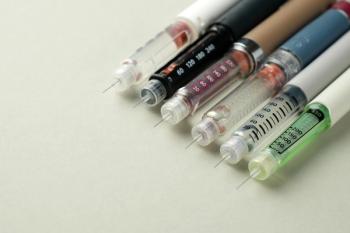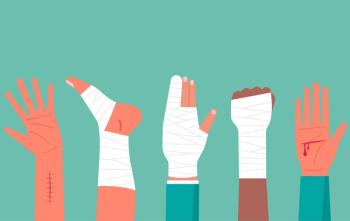
Teen Suicide Attempts Linked to Late Night Screen Use and Medication Access
Key Takeaways
- Adolescents' intentional overdose attempts are more frequent at night and linked to recent screen use.
- Both prescription and over-the-counter medications are commonly used in these suicide attempts.
Recent research links nighttime screen use and easy medication access to increased suicide attempts among adolescents, highlighting urgent mental health concerns.
Preliminary data from a recent study shows intentional overdose suicide attempts by individuals aged 12 to 17 are significantly more likely to occur during the night and in context of recent digital screen use.1
Investigators collected data from patients aged 12 to 17 who were admitted to a child and adolescent psychiatry unit after a suicide attempt by intentional overdose. Researchers focused on the time of day, screen use, and type of medication related to overdose suicide attempts in adolescents. The data showed intentional overdose attempts by adolescents to be more likely during the nighttime and in relation to recent use of screens. The study also found that both prescription and over the counter medications were used in these intentional overdose suicide attempts. There was also no significant difference in number of suicide attempts by intentional overdose between prescription drugs or over the counter drugs.
Leader of this study, Abhishek Reddy, MD, a child and adolescent psychiatry physician at the Carilion Clinic, noted that “Researchers have previously found links between screen use, suicidal behaviors, sleep problems, and mental health challenges in children. We wanted to examine the combination of those factors as well as the availability of prescription and OTC medications when it comes to overdoses.”1 Previous studies found high or increasing rates of use of addictive screen time were associated with suicidal behaviors and ideation.2 In a press release, Reddy added, “The main goal in identifying these factors is to help develop ways to reduce the number of suicides and self-harm among children and adolescents.”
Reddy provided clinical recommendations related to factors of screen time, medication access, and sleep health. Limiting children’s and adolescents’ access to screens, particularly in the hour before bedtime, can be beneficial, he explained. Reddy pointed out that disconnecting from screens is essential, especially before sleeping, and allowing screen time can also be used as a positive reward for behaviors parents would like to encourage. “Children who struggle with bullying at school can end up taking it home with them and seeing messages at night, when they are at their most vulnerable,” Reddy added. Good sleep hygiene is also important; it is useful to help children develop a routine to relax before bedtime, and refraining from treats with high sugar content or caffeinated beverages in the evening can also help improve sleep.
Reddy specifically noted access to prescription and over the counter medications should be monitored if a child is exhibiting struggles with their mental health. Parents can secure medications in the household to ensure they are not being misused. Reddy emphasized that the study’s preliminary “findings support clinical recommendations related to these factors” of sleep, screen time, and medication access.
This research will be presented at the American Academy of Child and Adolescent Psychiatry annual meeting in Chicago at the end of October.
References
1. Late-night screen use, easy access to medications tied to teen suicide attempts, study finds. Press release. September 25, 2025. Accessed September 30, 2025.
2. Xiao Y, Meng Y, Brown TT, et al. Addictive screen use trajectories and suicidal behaviors, suicidal ideation, and mental health in US youths. JAMA. 2025;334(3):219-228.
Newsletter
Receive trusted psychiatric news, expert analysis, and clinical insights — subscribe today to support your practice and your patients.





